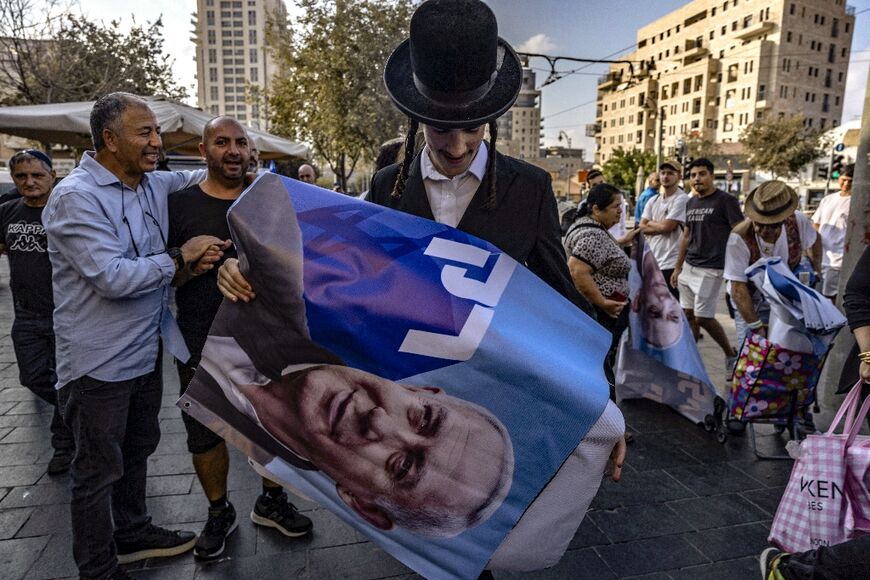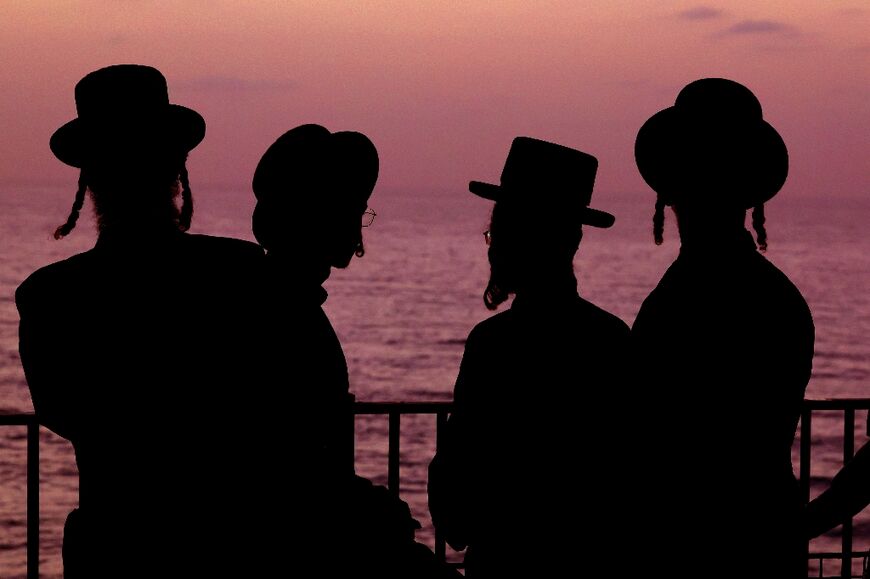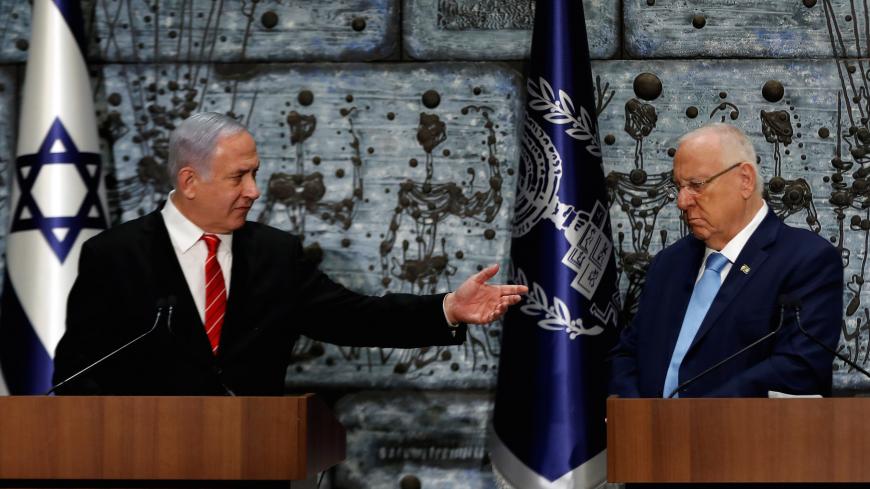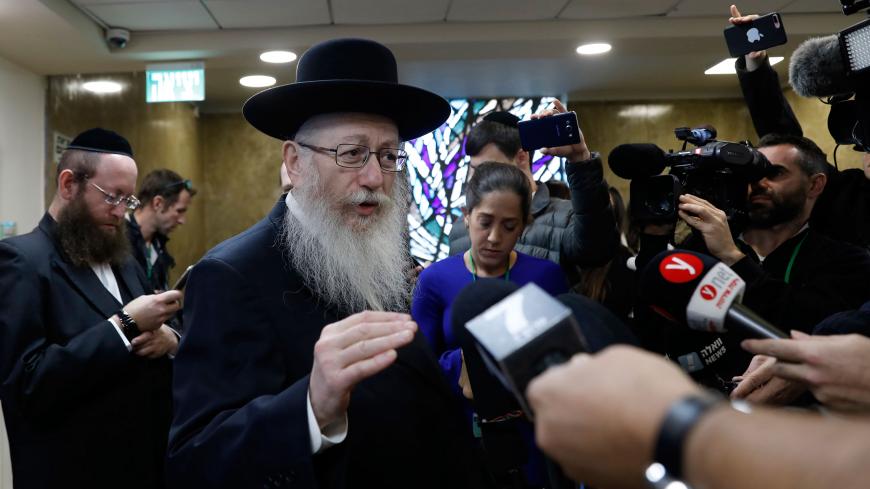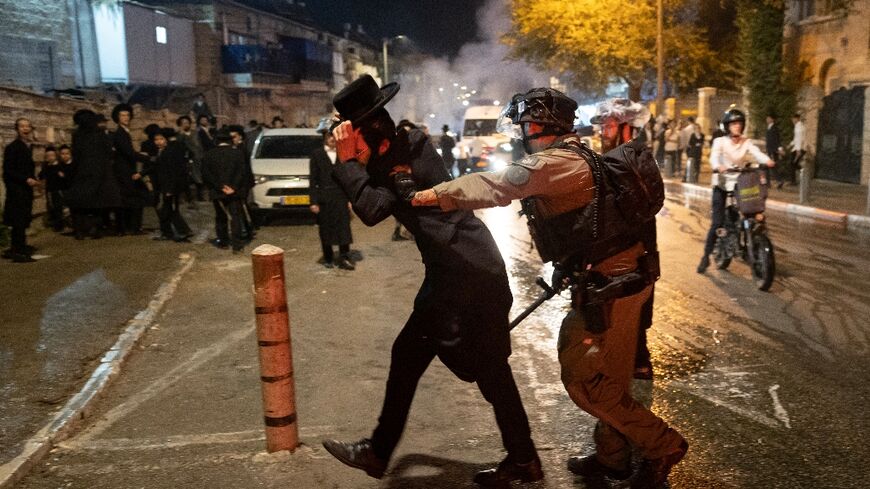Will Israel's ultra-Orthodox ditch Netanyahu after vote?

Former premier Benjamin Netanyahu's record run as Israel's leader would not have been possible without the unwavering support of ultra-Orthodox Jewish parties. But are they getting ready to part ways?
Party leaders say no, insisting they will not join any prospective anti-Netanyahu coalition after Tuesday's election, as it would not protect their deeply religious values.
The two parties representing the ultra-Orthodox community in parliament were booted out of government in June 2021 when a motley coalition of Netanyahu's rivals ousted him and took power.
But being in opposition is precarious for the ultra-Orthodox, known as haredim, who rely on government support to sustain their lifestyles, including subsidies that fund many adult men who opt for religious studies instead of working.
Analysts said haredim have suffered out of government, and that if Netanyahu again fails to secure a parliamentary majority after next week's polls -- Israel's fifth in four years -- they may seek new allies.
At the top of the list is Defence Minister Benny Gantz, a Netanyahu rival taking another shot at becoming prime minister.
"After four failures, there is a possibility that (the ultra-Orthodox) parties will abandon Netanyahu if he does not manage to form a coalition", Gilad Malach, a specialist in ultra-Orthodox society at the Israel Democracy Institute think-tank, told AFP.
Such a development would almost certainly prove fatal to Netanyahu's political career, as it appears impossible for him to form a government without Shas, which represents Sephardic Jews with roots in southern Europe and North Africa, and United Torah Judaism (UTJ), the party of Ashkenazi Jews of Eastern European descent.
- Non-starters -
Shas and UTJ, who reliably turn out their voters, have banked a combined 16 out of 120 parliament seats through Israel's era of political gridlock since 2019.
Malach noted that haredi support for Netanyahu's right-wing bloc is not historic.
Ultra-Orthodox Jews have on several occasions in Israel's 74-year history sat in a government led by centre-left Labor, once the dominant national party.
Labor is now diminished and considered an impossible ally for Shas and UTJ, with its leader Merav Michaeli pushing for public transportation on Shabbat, the Jewish day of rest when haredim want Israel to be fully closed.
Caretaker Prime Minister Yair Lapid, a committed secularist whose late father Yosef "Tommy" Lapid was a fierce critic of haredi society, is also considered a non-starter for the two ultra-Orthodox parties.
But Gantz, now leader of the centre-right National Unity alliance, insists he could win their backing.
His campaign included several outreaches to haredim, and he recently claimed he was "the only one capable of forming a coalition" and the ultra-Orthodox "will join".
- Gantz? 'Never' -
UTJ lawmaker Yitzhak Pindrus told AFP "there is no scenario in which we are part of a coalition with Gantz."
"What matters to us is respect for tradition," he said.
"We will go with Netanyahu because he is the one who ensures the survival of the Jewish state."
Yossi Taieb of Shas said his party "will never participate in a government led by Gantz, who is a left-winger no matter what he says."
"But if Gantz accepts the terms set by the right-wing bloc, he could join our coalition."
Gantz told AFP the dynamics were in fact more nuanced.
Asked Thursday on his flight back from Turkey if haredi parties would support him as prime minister, he said: "They say they won't but they also don't want to stay in the opposition."
"So I assume, depending on the results of the elections, they'll reconsider their options. I also know it."
- 'Substantial' offers -
Haredi politicians have long wish lists that include religious education grants and army service exemptions for their young men.
Pindrus insisted "financial offers from the left will not be enough for us to support Gantz or anyone else."
Shmuel, a haredi voter from Jerusalem who asked that his name be withheld fearing backlash within his community, said the ultra-Orthodox "cannot remain outside the sphere of influence and miss out on budgets for our schools and institutions."
"If Gantz offers a substantial budget for us and Netanyahu fails to form a coalition, the two haredi parties will join Gantz," he told AFP.
"They will go with whoever offers the most."



